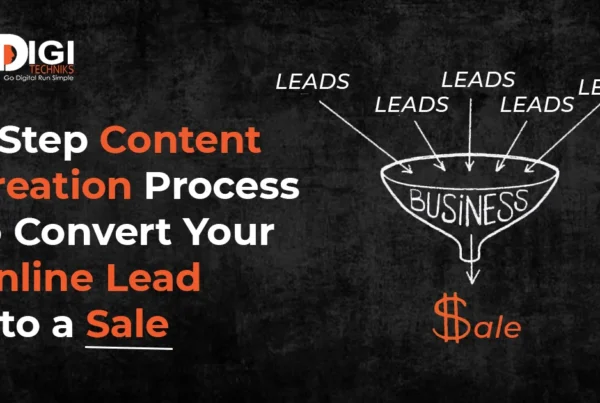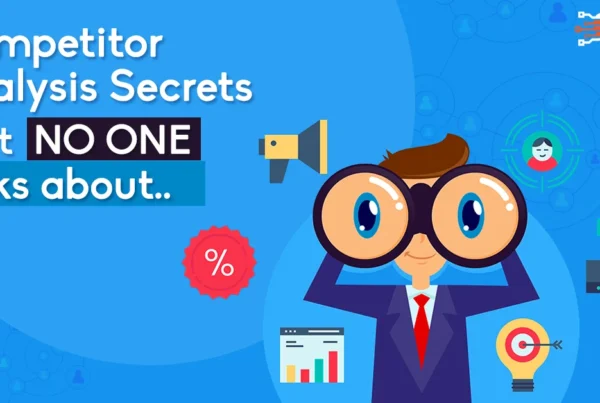
“Is my digital marketing strategy working?”
“Am I doing it right?”
“Why am I not seeing the results I want?”
“How can i fix my digital marketing strategy?”
If you find yourself asking these questions, don’t worry — you’re not alone. You are among the people who do not have a proper digital marketing strategy in place for your business.
In this article, you are going to learn to fix the problems in your digital marketing strategy.
According to the Managing Digital marketing research report, nearly half (45%) of companies don’t yet have a planned digital marketing strategy.
However, if you do have a digital marketing strategy and yet find that it’s not giving the results you expect, here are some questions you should think about:
- Have you established the right goals?
- Are you looking at the right metrics?
- Do you have the right tools to evaluate the results of your campaigns?
- Are you struggling to make sense of all the data you’re gathering?
Information overload is a real struggle
Too much information is overwhelming. With too much data at our fingertips, monitoring and measuring success can be tedious and time-consuming. This is why it’s important to know what to focus on and what to leave out.
With a ton of metrics to be tracked on a daily basis, it’s a tough job to navigate the right metrics to know whether your digital marketing efforts are actually helping you fulfill your business goals.
A recent LinkedIn report shows that 50% of digital marketers in India rely on inaccurate metrics.
So if you want to ensure that your digital marketing strategy is working to fetch you the results you’re looking for, let us walk you through five steps that will help you achieve that.
1. Plan
Failing in planning means failing in getting results.
The first step to making your digital marketing process more results-driven is to be sure you have clear goals. If you’ve already established your goals, take the time to evaluate those goals.
Begin with collecting as much information as you can about your business and industry as. This will include:
- The trends that impact your business, such as seasonal slumps or peaks in sales so you can tweak your marketing campaigns accordingly.
- The past achievements and failures of your business, such as marketing campaigns that were successful and the ones that weren’t.
- Market research to see what your competitors are doing, what’s working and what’s not.
Also, it’s important to narrow down your goals to make sure you’re hitting the nail on its head.
For example, instead of a vague goal like “make more sales”, go for something more specific, such as “increase sales of X product/service by X% by the 2nd quarter”.
Such clear-cut goals help to make your marketing campaigns more focused and easier for you to identify the actions that will get you the result.
Related Article– 8 Step approach of a Successful Digital Marketer
2. Implement
It’s another very important step to drive results.
Many people plan but only few implement.
You have to figure out how you can implement the digital marketing strategy that you have planned in the first step.
Create all the processes with action points, Fix the calendar and complete the tasks one by one.
A good way to start is by identifying your target audience and creating your customer profile. The objective here is to know exactly who you’re going to market to.
For example, if you’re targeting new moms to buy baby products from your online store, your social media activities and online ad campaign need to be designed around that demographic.
Because you have pinpointed exactly who you are marketing to and which product you are trying to sell, your digital marketing strategy is much more actionable and likely to produce results.
Related Article– 8 Steps to Develop a Google Ads Strategy for Any Business
3. Track
Now, it comes to making sure that your goals are relevant and measurable. How to do that? Focus on metrics like revenue per lead by source or an estimated sales value of each new lead.
For instance, if you know which of your leads are most likely to convert and where they are coming from, you can continue to invest in those channels. Likewise, this will help you stop wasting your time and money on channels that won’t be the most profitable for you.
Carrying on with your marketing campaigns without knowing if they are actually working and what needs to be done to improve them can be a huge drain on your budget.
For a truly result-driven digital marketing strategy, you must track the progress of your campaigns and recognize specific ways to measure success. For example, if you’re running a social media ad campaign, the metrics you need to focus on are:
- The “impressions” your posts are generating
- How engaging they are
- Click rate or how many people are interacting with your post
- Traffic or how many people are visiting your website
Related Article– 6 Simple social media hacks to convert contacts to contracts
You need to pay attention to each and every aspect of your digital marketing campaigns to understand how truly successful they are and which are the areas that need to be tweaked. Failing to do that, you may risk running an ineffective campaign for too long, and wasting your money as a result.
Here are some tools that will help you at this stage:
Digital marketing analytics – This helps you monitor and track critical aspects like the search engine rankings and social media performance of your business.
Testing tools – These enable you to test the different versions of a marketing message or a feature on your website. For example, testing the headlines of your email campaigns or different versions of sign-up forms will let you determine which option will get you higher conversions.
Event-based tools – These will allow you to look at the actions that visitors perform on your website or mobile app.
Visual behaviour tools – These tools let you track which areas of your website are more engaging to visitors and where they are spending more time. For example, when you gain insights like which are the most heavily clicked areas on your website, you can place your call-to-action buttons there for maximum impact.
4. Interpret
After you have collected data and gained insights into your campaign’s performance, you’ll be better positioned to determine where to allocate your budget for increased ROI.
There can be many ways to interpret what you discovered in the earlier steps.
For one, you must put more time, effort, and resources into channels that generate higher quality leads and offer maximum potential for conversions.
If you don’t seem to be getting results from a particular channel, it means your product/service is probably not for the users and demographic of that channel. This will require you to take another look at your audience profile or try another more suitable channel.
Evaluating the insights will also help you understand whether you need to readjust your goals. Maybe you’re setting up objectives that are too ambitious for your business at the moment and that’s why your marketing efforts are falling short of expectations. Or perhaps, you’re meeting your goals too easily and need more challenging goals to see better end results.
Armed with this information, you’ll need to tweak, rinse, and repeat your digital marketing strategy until you see the outcomes you’re looking for.
5. Optimize
Based on Interpretation you’ll have to optimize the required platforms and campaigns.
After understanding which activity is giving you better results, you’ll have to focus more or less on the respective activity.
For example, if you have many pages ranking on the 2nd page of google for commercial keywords, you can optimize your webpages in such a manner that they come to the 1st page of google. This optimization will give you instant results.
Related Article– Step by Step Guide To Develop a Search Engine Strategy for Your Business
For a digital marketing strategy to be successful and effective, it needs to be result-driven. If you’re not driving profits through your online campaigns, it’s time to put your strategy under the scanner.
It might seem like an overwhelming process with a whole bunch of metrics to be tracked, but knowing which of them apply to your business and monitoring them using appropriate tools can make all the difference.
We’re hoping this guide will ease some of that confusion and help you create a digital marketing strategy that actually works for your business.
Our coach Mr. Sharan Kulkarni is on the mission to help people make a result-driven digital marketing strategy for their business.
Do you want to get a personalised 1-to-1 discovery session?
Book your 1-to-1 discovery call with us today!



